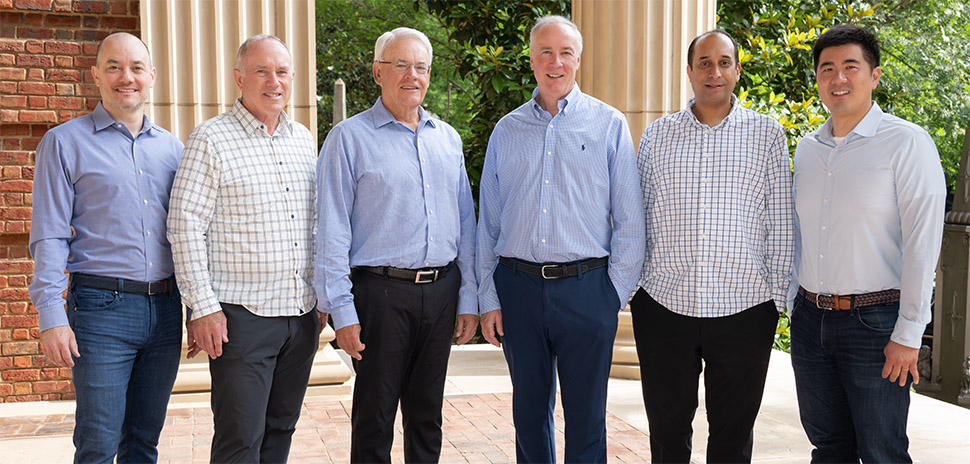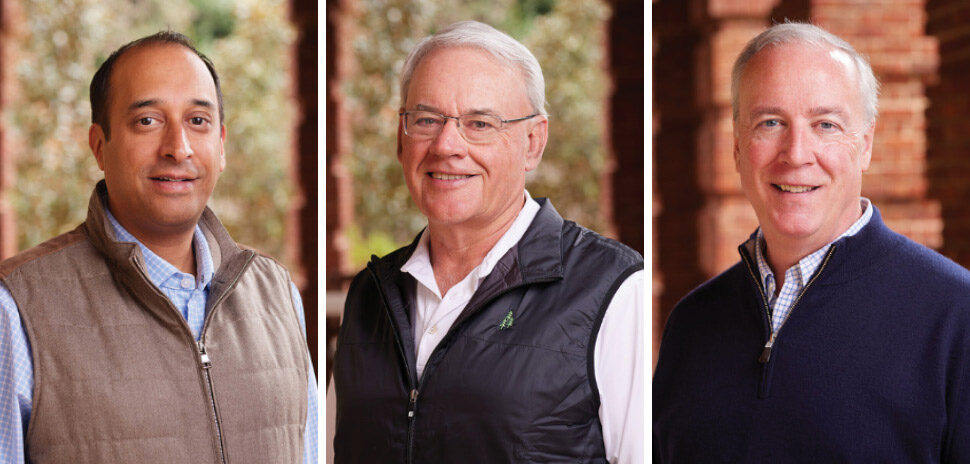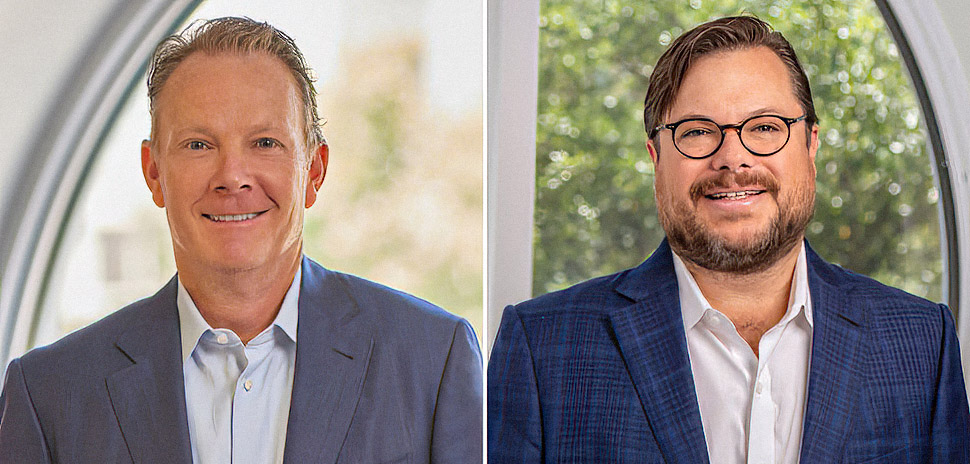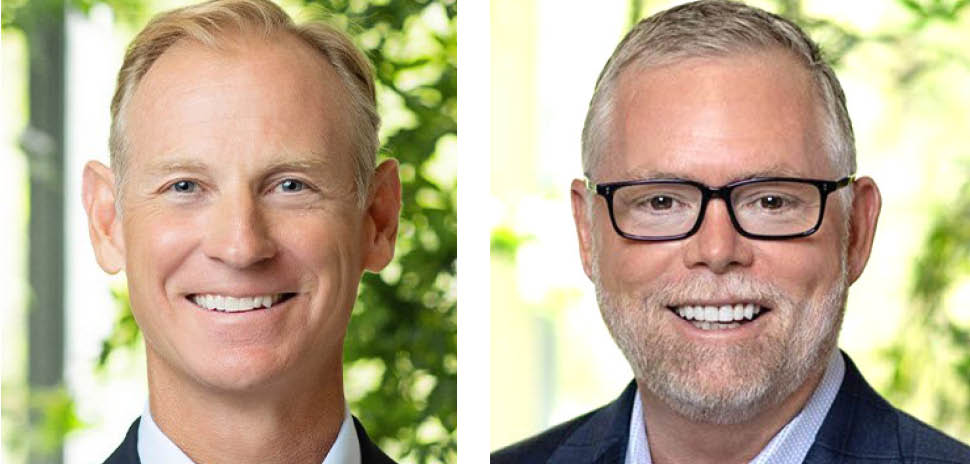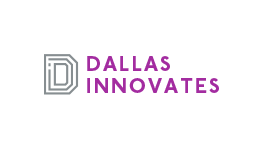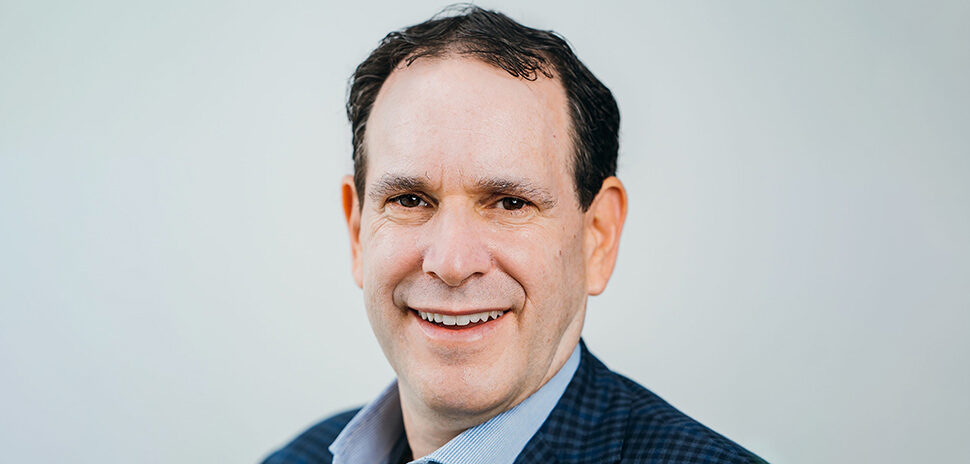Dallas-based Cypress Growth Capital has closed its oversubscribed Fund V at $60 million in just 43 days, defying the odds in a challenging capital-raising environment. The private equity firm, known for non-dilutive growth capital investments in tech-enabled services and SaaS companies, attributes the fund’s rapid close to its strategy and strong track record.
“We set out to raise $50 million; we actually raised $60 million—and it was one close,” said Vik Thapar, Managing Director at Cypress Growth Capital. Thapar emphasizes that the fund’s 43-day timeline, achieved despite including spring break, is an anomaly in the current market.

Vik Thapar
“I don’t think it’s an accurate depiction of the fundraising environment,” he said. “Funds are taking longer to raise capital.” In this environment, he says, funds are taking a year or more to close.
Thapar attributes Cypress Growth Capital’s success to its “top decile returns” and unique investment strategy. The firm’s focus on creating value for its portfolio companies and its equity-preserving investment model has been particularly appealing to entrepreneurs who are cautious about high valuations and significant equity dilution.
With over $2.4 billion in enterprise value created and more than $600 million in entrepreneur wealth generated, he says, Cypress Growth Capital has demonstrated its ability to identify and support high-potential companies in the tech-enabled services and SaaS sectors.
“They’ve seen the success…”
Fund V, which closed in early May, secured committed capital from existing and new investors. The firm’s long-standing relationships with its investors, spanning over a decade, have been built on a foundation of trust and fund performance, Thapar says. “In our case, a number of our existing Limited Partners [LPs] re-upped, and a number of new investors that have been tracking us came into the picture,” he said.
However, as Cypress Partner Vincent Hsieh emphasized, “If we’re not performing, they’re not going to put money in anymore.”
According to Hsieh, Cypress Growth Capital’s first three funds, which are either fully deployed or nearing full deployment, have demonstrated the firm’s ability to generate attractive returns for its investors. “They’ve seen the track record,” he said. “It’s easier to decide to follow on.”
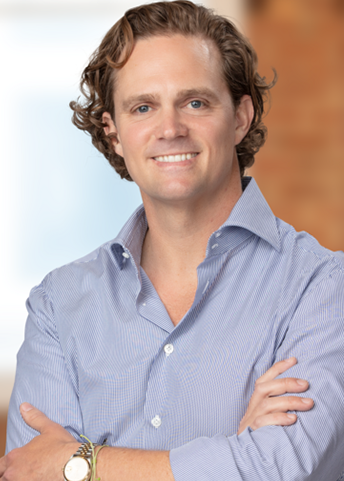
Dialexa Co-Founder and CEO Scott Harper
Cypress Partner Pat McCaffrey noted a significant overlap in the firm’s LP base from funds three, four, and five, which “indicates they feel it’s a good investment.” The firm’s $50 million Fund IV, which closed in 2021 in about 60 days, was also oversubscribed.
Thapar said Cypress investors include high net-worth individuals and former founders and CEOs of its portfolio companies that have successfully exited or had a liquidity event. One such investor is Scott Harper, co-founder and CEO of Dialexa, a Dallas-based technology company acquired by IBM in 2022.
“Cypress’ non-dilutive capital was the right choice for us when we were an emerging company,” said Harper. “More importantly, the Cypress team provided advice and support that helped us achieve exceptional growth. I’m proud to be an investor in the current fund and to be contributing to the success of a future generation of entrepreneurs.”
A year of unprecedented activity
In the past 15 months, Cypress has made 10 investments, “well above our historical average of 4 to 5 companies each year,” according to Hsieh. The latest investments include:
- PEC360, a South Carolina-based provider of healthcare-specific patient engagement software and related services (April 2024).
- Franklin Junction, a Georgia-based company helping restaurant operators and dining concepts generate incremental revenue through its innovative Host Kitchen® business model (March 2024).
- Privy, a Colorado-based real estate investment software company providing curated information to investors and real estate agents focused on residential real estate investment opportunities (January 2024).
“We have another one closing in about a month,” Hsieh said.
The firm’s increased activity comes at a time when equity markets have become tougher, prompting some companies to delay their equity raises. “We’re a nice non-dilutive bridge for companies to get a few million dollars of capital to accelerate initiatives, primarily around sales and marketing and product development,” Hsieh explained.
“We get opportunities brought to us because there are so few tech investors in Dallas.”
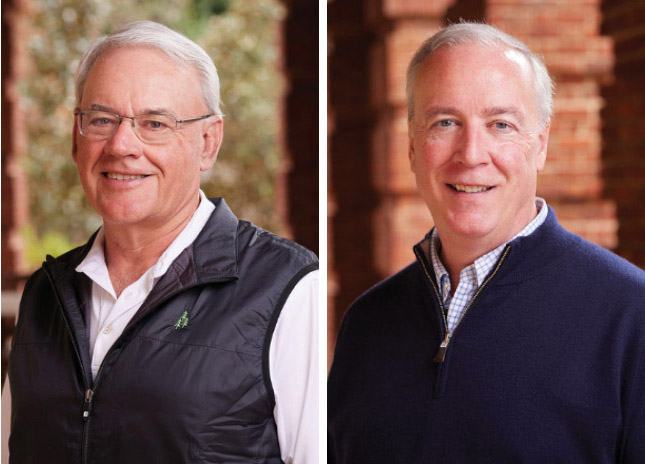
Barton Goodwin and Ed Mello founded Cypress Growth Capital in 2010.
Cypress Growth Capital, co–founded in 2010 by managing directors Bart Goodwin and Ed Mello, has made 56 investments across 14 years, with a significant focus on underserved markets outside of the traditional coastal hubs. Of these investments, 22 were in Texas and 15 in Colorado, accounting for a substantial portion of the firm’s portfolio, Hsieh noted.
Cypress has expanded its geographic reach, the partner says, recently closing its first deal in Atlanta with restaurant tech platform Franklin Junction and making three to four investments in the Carolinas over the past couple of years. The firm also made its first investment in Kentucky last year, backing a healthcare supply chain software company.
Citing the “Rise of the Rest,” Hsieh emphasized that Cypress’s expanding focus on “underserved flyover states” is not by chance. The firm employs a proactive process to identify promising geographies and cities, making regular market trips to meet with local ecosystems, connectors, and entrepreneurs. Hsieh noted that Thapar has spent significant time in Colorado over the last decade, resulting in 15 deals in the state—and highlighting the effectiveness of the firm’s boots-on-the-ground strategy.
Time in Colorado aside, Thapar remains “bullish on Texas.” It’s a great market, he says, adding that the firm continues to see more opportunities locally.
“If we could, we’d love to invest the entire fund in Texas,” he continued. “The market is getting bigger and better. We’ll continue to find more companies here and deploy capital locally. … The startup we’re about to invest in, as [Hsieh] mentioned, is a Dallas company.”
McCaffrey pointed out that there are surprisingly few tech-focused investors in North Texas and Dallas, which has worked to Cypress’s advantage. The firm’s location at Old Parkland, a historic Dallas landmark turned office complex, has helped establish its presence as a tech-focused investor.
“We get opportunities brought to us because there are so few tech investors in Dallas,” he said. “I like it that way.”
Navigating a tough fundraising environment
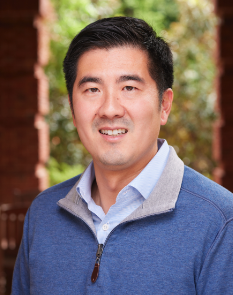
Vincent Hsieh
Cypress Growth Capital targets emerging and expansion-stage companies primarily operating in the software and technology-enabled services sectors and makes investments typically ranging from $1 million to $5 million. Cypress Growth Capital particularly focuses on “tweener stage companies” with revenues ranging from $5 million to $15 million, Hsieh says. The firm is the largest source of capital for that space, “for sure in Dallas, if not in Texas.”
According to the firm, 90% of the companies it funds achieve their desired outcome, with an average 10x growth in equity value following their investment. And while the size of the firm’s checks might be comparatively smaller than those of other investment firms, that’s by design. By providing these smaller investment “check sizes,” Cypress Growth Capital aims to help companies reach an inflection point where they can confidently decide whether to continue growing, pursue a larger growth equity round, or explore strategic options like recapitalization or sale, while preserving the entrepreneurs’ equity and control.
In the current market conditions, Thapar sees entrepreneurs who are increasingly open to exploring funding strategies beyond traditional equity raises. The PE firm’s non-dilutive, royalty-based growth capital approach sets it apart from traditional private equity and venture capital firms by allowing entrepreneurs to access funding without giving up significant equity ownership and control of their companies, he says.
“The quality of our companies is extremely high because they are now open to alternative capital strategies,” Thapar said, adding insights on the evolving capital strategy among entrepreneurs. “In 2021, many entrepreneurs raised a lot of capital at really high valuations. They’ve learned that while this can sometimes be advantageous, it also means they need to sell for much higher amounts.”
Thapar noted that over the last couple of years, entrepreneurs have gained a better understanding of capital strategy, making “our non-dilutive solution more attractive.”
Entrepreneurs are “looking at different options versus what they’ve been historically taught,” he said. “‘Okay, let’s raise another round of equity.’ is not necessarily the playbook everyone’s using anymore.”
That shift has led to an increase in high-quality deals for Cypress, he notes. “Even though we’ve made 11 investments in the last 16 months (including one to be announced), which is more than we’ve ever done in a similar period, the quality of our companies is extremely high,” Thapar said. “Entrepreneurs are looking at how they can control their destiny more effectively.”
Three common paths for portfolio companies
Thapar outlined three common paths for companies after receiving investment from Cypress. “Oftentimes, our companies take our capital, and they end up in one of three places,” he explained. “The first one is a strategic exit. We’ve had a number of those; Dialexa would be an example of that. Another is a PE recap, as seen with Geoforce, which took our capital, grew, did a growth equity round, and then a PE recap with LLR Partners. The third is a growth equity round, where a company takes our capital, grows, and then does a minority or growth equity round at more favorable terms and valuation.”
These outcomes typically occur within a 2-4 year timeframe after the initial investment, Hsieh added, noting that 77% of Cypress’s investments follow one of these paths within the first four years.
“They definitely lean on us.”
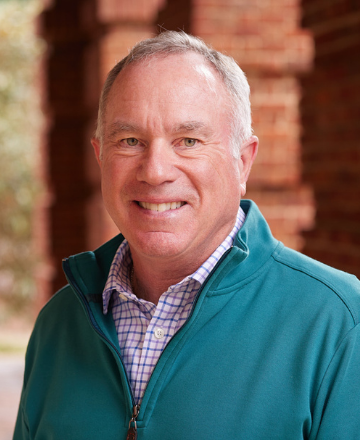
Pat McCaffrey
Partner McCaffrey said the added value of Cypress Growth Capital’s approach is why founders choose them. “We often hear from our CEOs or founders that the ‘more than capital’ aspect made them decide to take our capital versus another source. It’s not just the capital we’re providing, but also the advice and counsel.”
Cypress engages with portfolio companies based on their individual needs, providing guidance on sales, marketing, capital strategy, exits, and executive hires. The firm’s collective operational experience is a significant asset, McCaffrey says. Before joining Cypress Growth Capital, the partner was the Chief Operating Officer at Omnitracs, an IoT and SaaS company based in Dallas and owned by VISTA Equity. “Before that, I have a long history on the operating side in tech and tech-enabled service SaaS consulting, a lot of different industries, mostly client-facing roles,” McCaffrey said.
Founders “quickly realize we have been around the block a few times operationally, and we help them overcome challenges,” he adds. “Some have not been through the experience of scaling a company or hitting speed bumps along the way.”
A recent investment in a South Carolina company illustrates the team’s approach. “The CEO wanted to discuss pricing strategies, so we organized a workshop on value pricing,” McCaffrey explained. “Later, our relationship may evolve into advising on capital strategy, exits, or helping interview executive-level hires
McCaffrey stressed their advice is always company-specific. “The counsel and advice we give depends on the company and the circumstances. There’s not much we haven’t seen over the years,” he said. “We deliver advice in a digestible way for the company, and we’re not directive. We don’t tell them what to do; we just give them our counsel on how they might consider addressing a challenge or an opportunity.”
Thapar adds: “They definitely lean on us.”
“They know what’s cutting edge in their field.”
Cypress specifically looks for founder-led companies. “They all are founder-led,” Hsieh said. “The founder owns the majority of the company.”
The partner emphasizes the quality and expertise of the entrepreneurs Cypress backs. “We’re always finding really, really good entrepreneurs,” he said, explaining that the team’s backgrounds allow them to have a better “sniff test” for identifying the necessary skill set, mindset, and resiliency needed to scale a company successfully.
Cypress seeks out subject matter experts in their fields, whether it’s restaurant tech or industrial cybersecurity, he says. “Whatever it is they’re doing, they’re experts at doing that,” Hsieh said.
The combination of these founder factors—entrepreneurial skill, founder leadership, and subject matter expertise—forms the core of what Cypress Growth Capital looks for in potential investment opportunities.
Hsieh said the firm’s focus remains on tech-enabled services and B2B SaaS, with an eye on emerging growth opportunities, such as AI.
But, he says, the firm isn’t “investing in AI just for the sake of AI or because someone has a cool new model.” Cypress looks for companies that apply AI in practical, value-adding ways. “For example, we have a company that uses camera-based solutions for security monitoring,” he said. “Their AI can distinguish between different types of animals, reducing data fatigue and alert fatigue.”
Another portfolio company in South Carolina uses AI in their messaging tools to smartly confirm appointments, he says.
“We’re not trying to be the subject matter experts in any technology or cutting-edge industry,” Hsieh said. “We pick really good entrepreneurs who are subject matter experts. They know what’s cutting edge in their field. Our role is to provide them with the capital and counsel to get there faster on the business side of things.”
Growing a team with “street cred”
As Cypress Growth Capital prepares to deploy Fund V, the firm is expanding its team to support its growing portfolio. Currently, Cypress has six members, with plans to hire an associate and an analyst in the near term. “As we continue to grow, we’ll add more over time,” said Thapar.
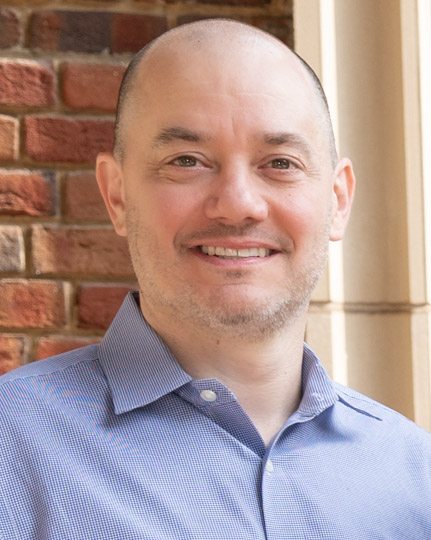
Cliff Sentell
The firm’s newest partner, Cliff Sentell, joined in March 2024, bringing his experience as the co-founder of Compass Professional Health Services, a Dallas-based company acquired by Alight. Sentell’s addition enhances Cypress’s operational expertise, which is a key differentiator for the firm.
Cypress Partner Vincent Hsieh’s own full-circle journey with the PE firm illustrates how it builds both long-term relationships and internal expertise. Hsieh transitioned from a portfolio company leader to a limited partner and, finally, to a general partner at the firm. He was COO/CFO of Plano-based industrial IoT company Geoforce when Cypress Growth Capital became its first institutional investor. After the investment, Hsieh successfully grew and eventually exited the company. Following that, he became an investor in Cypress Growth Capital’s funds before joining the firm as an investment partner.
As the market evolves, Thapar says Cypress continues to adapt, leveraging its deep industry knowledge and strong network to identify and support high-potential companies.
As Cypress Growth Capital continues to expand its team and portfolio, the firm remains committed to providing not just capital but also the operational expertise and guidance that founders need to succeed. McCaffrey underscores this commitment:
“We use our collective experience to support our portfolio companies,” McCaffrey said. “We marshal these resources and experiences, particularly on the front end, to help our companies succeed.
“A big part of our model is to help companies after we invest in them, and you have to have a little street cred to pull that off.”
Get on the list.
Dallas Innovates, every day.
Sign up to keep your eye on what’s new and next in Dallas-Fort Worth, every day.










